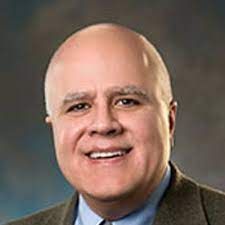Exagamglogene Autotemcel Reduces Risk of VOCs in Sickle Cell Patients
Every patient in the study was VOC-free at the time of the data cut.
Haydar Frangoul, MD

New research suggests exagamglogene autotemcel is a viable treatment option for patients with severe sickle cell disease (SCD).
A team, led by Haydar Frangoul, MD, Sarah Cannon Center Research Institute and The Children’s Hospital at TriStar Centennial, reported the4 efficacy and safety data from 31 patients with sickle cell disease dosed with exa-cel.
The data was presented during the 2022 American Society of Hematology (ASH) Annual Meeting.
The Treatment
Elevated fetal hemoglobin is linked to improved outcomes for patients with sickle cell disease. One potential treatment option is exagamglogene autotemcel, a cell therapy aimed at reactivating HbF through non-viral, ex vivo CRISPR/Cas9 gene-editing at the erythroid enhancer region of BCL11A in autologous CD34+ hematopoietic stem and progenitor cells (HSPCs).
In the CLIMB SCD-121 study, investigators found a single dose of exa-cel increased HbF and total hemoglobin (Hb) eliminated vaso-occlusive crises (VOCs) in patients with severe sickle cell disease aged 12-35 years. Each patient had a history of at least 2 VOCs per year in the proceeding 2 years before screening
The investigators monitored exa-cel patients after pharmacokinetic-adjusted, busulfan myeloablation and infusion for engraftment, total Hb, HbF, BCL11A-edited alleles, transfusions, VOCs, and adverse events.
The team sought primary endpoints of the proportion of patients who have not experienced a severe VOC for at least 12 months after the infusion of exa-cel, starting 60 days after their last RBC transfusion.
Data Cut-Off
The most recent data cut was February 2022, where 31 patients with a median age of 22.5 years were infused with exa-cell for a mean follow-up of 9,6 months. Of this group, 19.4% (n = 6) were between the ages of 12-17 and 93.5% (n = 29) had the βs/βs genotype.
Prior to screening, patients experienced an average of 3.9 severe VOCs per year, while all patients engrafted neutrophils and platelets with a median time of 27 and 32 days, respectively after exa-cel infusion.
Every patient in the study was VOC-free at the time of the data cut (duration of follow-up 2.0–32.3 months after exa-cel infusion) with a median time from exa-cel infusion to last RBC transfusion was 19 days.
The mean proportion of HbF was >20% by month 3, with mean total Hb levels >11 g/dL on and after Month 3.
In addition, all 11 patients who have at least 12 months of follow-up after exa-cel infusion have maintained HbF levels >20% while experiencing no VOCs.
At month 6, the mean proportion of edited BCL11A alleles in bone marrow CD34+ HSPCs and peripheral blood mononuclear cells was 86.6% and 76.0%, respectively, which remained stable in all patients who had ≥1 year of follow-up.
For safety, there were no patients who had serious adverse events deemed related to exa-cel, with no deaths, discontinuations, or malignancies.
“Exa-cel infusion led to the elimination of VOCs in all patients with SCD, with associated clinically meaningful increases in HbF and total Hb that were maintained over time,” the authors wrote. “Proportions of CRISPR/Cas9-edited BCL11A alleles have remained stable after ≥1 year, indicating that long-term HSCs were successfully edited. The safety profile was generally consistent with that of busulfan myeloablation and autologous transplant. Exa-cel has the potential to be the first CRISPR/Cas9-based therapy to provide a one-time functional cure for SCD.”
The study, “`Efficacy and Safety of a Single Dose of Exagamglogene Autotemcel for Severe Sickle Cell Disease,” was published online by ASH 2022.